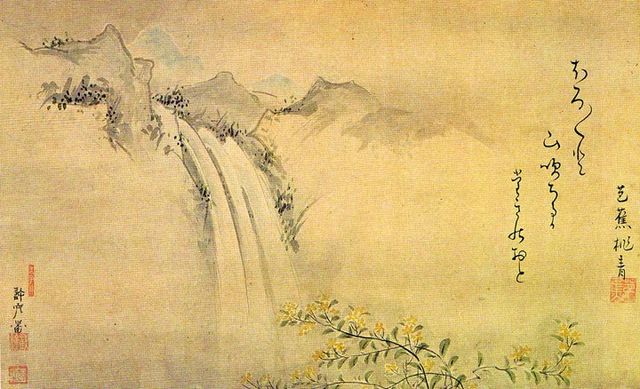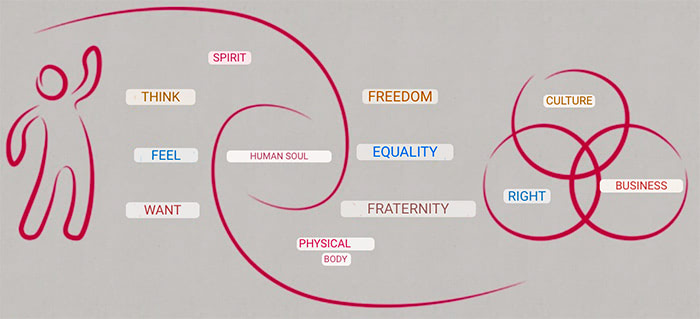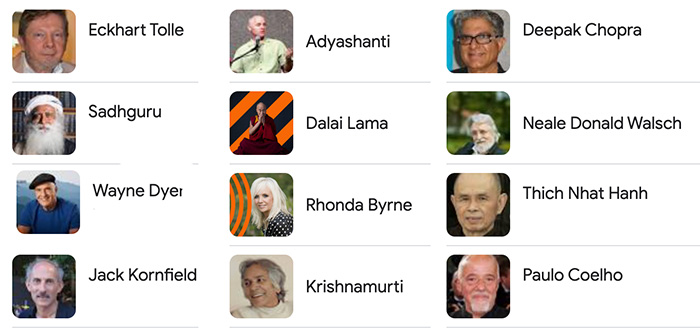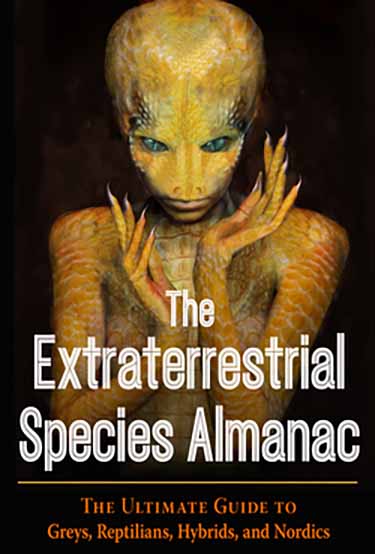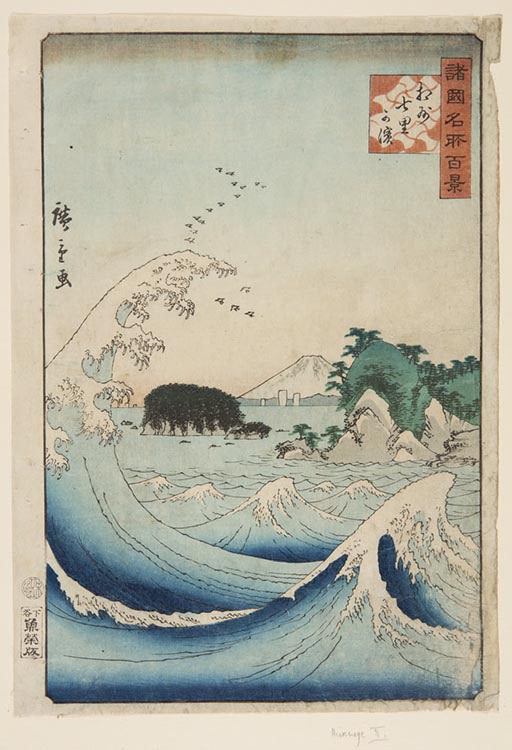[Press PLAY and you can listen to a reading of this article.]
About money and wealth
A Spiritual Perspective
First, lets have some definitions, so we know what we are talking about – the generally accepted consensus 😎
Money: something generally accepted as a medium of exchange, a measure of value, or a means of payment
Merriam Webster Dictionary
Money: a commodity accepted by general consent as a medium of economic exchange. It is the medium in which prices and values are expressed. As currency, it circulates anonymously from person to person and country to country, thus facilitating trade, and it is the principal measure of wealth.
Brittanica Mony Dictionary
Wealth: the abundance of valuable material possessions or resources
Merriam Webster Dictionary
Wealth: measures the value of all the assets of worth owned by a person, community, company, or country. Wealth is determined by taking the total market value of all physical and intangible assets owned, then subtracting all debts. Essentially, wealth is the accumulation of scarce resources.
Inverstopedia
Wealth is the abundance of valuable financial assets or physical possessions which can be converted into a form that can be used for transactions.
Wikipedia
Wealth: is a monetary measure which includes the sum of natural, human, and physical assets owned by a person, community, company, or country..
Natural capital includes land, forests, energy resources, and minerals.
Human capital is the population’s education and skills.
Physical capital includes such things as machinery, buildings, and infrastructure.
United Nations
~~~
For me personally this is pretty much straight forward:
If I have money, I can do things, I can get somewhere.
If I have very little money, it is like walking in place.
If I have no money …. well, that’s a bummer!
In our world if you have absolutely no money you are fucked,
pardon my French 😉
Its very simple:
If I have money, I am happy.
If I have little money, I am happy but it’s tiresome.
If I have no money, I have to take action. And quick!
With “wealth”, the story is a bit more complex.
~~~
I like metaphors, symbolic language, the poetic way to say things.
Haikus.
In this way I link money to water.
It comes from the sky, freely.
It makes life possible.
It nurtures.
It flows.
With water comes abundance.
Where there is water, every thing flowers.
And in the end, water find its ways to the ocean.
Wealth is, when I collect water into a jar.
Wealth is when I am saving water for another day.
Because … well, maybe it will not rain tomorrow. Or the day after.
Maybe it will never rain again!
When I keep water in a jar, or a pot, or a bottle, it will become stale.
If I keep it there for too long, the life force inherent in the water will disappear.
What’s left will be ….. just H2O.
The more water I want to collect, the more complicated it will get.
The container needs to be really strong.
The dam needs to be really sophisticated to hold back the power of water.
And when the dam cracks one day, shit happens.
There is no way to hold back the water.
Water wants to flow.
This is how I see wealth.
To save a little money, is fine.
Even smart, intelligent, far-sighted.
To save too much, things get complicated.
The mind gets in the way,
the ego wants to have a say.
It’s hard to believe what wealth can do to people.
It’s not just love and honey, to be rich.
Obviously there is a dark side to excessive wealth.
Wealth, while offering many bright sides, can also give rise to a range of negative human emotions and attitudes that can undermine personal happiness, distort relationships, and contribute to broader social issues.
With riches, the shadows are not far away. Excessive wealth has an effect on the psyche and it is not always a good one.
Greed. fear and anxiety, social isolation, arrogance and entitlement, jealousy and envy, mistrust, secret guilt, complacency, selfishness and addiction to power and control are quite often observable in high net-worth individuals.
The desire for more wealth can become insatiable, leading individuals to prioritize accumulation over other values. Greed can drive unethical behavior, such as exploitation and dishonesty, as individuals strive to increase their wealth at any cost.
Wealth can bring fear of loss, leading to anxiety about maintaining or increasing one’s financial status. This fear can result in a preoccupation with money, causing stress and a constant sense of insecurity, even among those who are financially well-off.
Excessive Wealth can create barriers between individuals and their communities. The affluent may feel separated from those with less, leading to social isolation. Wealth can also breed suspicion, as wealthy individuals might question the motives of those who seek relationships with them.
Wealth can foster a sense of superiority and entitlement. Individuals might develop an inflated sense of self-worth, believing that their financial success makes them inherently better or more deserving than others.
Even among the wealthy, there can be a constant comparison with others who have more. This can lead to feelings of jealousy and envy, which can erode personal contentment and foster resentment.
The wealthy might become suspicious of others’ intentions, fearing that people are interested in them only for their money. This can damage personal relationships and lead to a lack of genuine connections.
Those with wealth might feel a secret subconscious guilt over their financial status, especially if they perceive it as unearned or disproportionate to the effort they put in. This can create internal conflict and diminish the enjoyment of their wealth.
Wealth can lead to a sense of complacency, where individuals become less motivated to strive for personal growth, innovation, or to engage in meaningful activities. The comfort and security of wealth can reduce the drive to overcome challenges and achieve new goals.
Selfishness: The desire to protect and grow personal wealth can lead to selfish behavior, where individuals prioritize their own needs and desires over those of others. This can result in a lack of empathy and disregard for the welfare of others.
Wealth often brings power, which can become addictive. The desire to control others or situations to maintain or enhance one’s status can become a dominant force, leading to manipulative or coercive behavior.
Emptiness and depression may be lurking in the background. Paradoxically, wealth can sometimes contribute to depression. The pursuit of wealth as a primary life goal can leave individuals feeling empty or unfulfilled once they achieve their financial objectives, especially if they neglect other aspects of a balanced, meaningful life.
Obviously, this is only the dark side of the coin.
Understanding those potential negative emotions and attitudes can certainly help individuals navigate the complexities of wealth more mindfully. By being aware of these pitfalls, one can strive to maintain a balanced perspective, cultivate gratitude, and use their resources to foster personal and communal well-being.
At least this is what I would do.
But hey! What do I know about wealth?
Nada!
😆
[ In case you are in a hurry and want to jump down to the end, the conclusion of it all, click here ]
Otherwise i wish you a enjoyable, truly mind-expanding journey ]
~~~
~~
`
Ya, that’s the question! What would Jesus say about Money and Wealth?
As far as I remember from reading the New Testament, the teachings of Jesus about money and wealth stress the importance of prioritizing spiritual values over material possessions. He cautioning against the dangers of greed and attachment.
Jesus emphasized the need for generosity, compassion, and stewardship, teaching that true treasure is found in heavenly riches rather than earthly wealth. Christians are encouraged to use their resources to serve others, support the needy, and advance the kingdom of God, reflecting a commitment to love, humility, and selflessness in their financial affairs.
The story of the Rich Young Ruler – Matthew 19:16.
Jesus’ encounter with the rich young ruler illustrates the spiritual danger of wealth. When the young man asked what he must do to inherit eternal life, Jesus advised him to sell his possessions and give to the poor. The man’s sadness at this suggestion highlighted how his attachment to wealth hindered his spiritual journey.
Jesus then remarked, “It is easier for a camel to go through the eye of a needle than for a rich person to enter the kingdom of God.” This underscores the difficulty of maintaining spiritual integrity while being overly attached to material wealth.
The Parable of the Good Samaritan – Luke 10:25.
In this parable, Jesus emphasizes the importance of using one’s resources to help others, regardless of social boundaries. The Samaritan, who helped the injured man, is praised for his compassion and generosity.
The Sermon on the Mount – Matthew 6:19.
Jesus advised against storing up treasures on earth where they can be destroyed or stolen. Instead, he encouraged storing up treasures in heaven, where they are secure. “For where your treasure is, there your heart will be also.”
This teaching encourages focusing on spiritual wealth rather than material accumulation.
No One Can Serve Two Masters – Matthew 6:24).
Jesus declared that one cannot serve both God and money. This teaching underscores the conflict between spiritual devotion and the pursuit of wealth, urging followers to prioritize their relationship with God over financial gain.
Now, already long gone, Jesus still is a mayor moral authority in our world. At least theoretically . 😎 So we shall better consider what he has been teaching to his followers.
~~~
~~
`
A little ways further East Buddha has been teaching and saying quite similar things about wealth and moneys.
Buddha’s teachings on money and wealth highlight the importance of non-attachment, ethical living, and the practice of generosity. Wealth, when earned and used ethically, can support one’s life and contribute to the welfare of others.
However, the ultimate goal is to transcend material attachment and cultivate inner peace, contentment, and spiritual growth.
Non-Attachment and Contentment:
– The Middle Way – The Buddha advocated the Middle Way, a path of moderation between extreme asceticism and indulgence. This implies that while wealth itself is not inherently bad, becoming attached to it or being driven by greed can lead to suffering.
True contentment comes from within, not from external possessions.
The Dangers of Greed:
– The Second Noble Truth – According to the Buddha, the root of suffering (dukkha) is craving (tanha), which includes craving for wealth. Greed is one of the three poisons (alongside hatred and delusion) that lead to suffering.
The Buddha taught that attachment to material wealth can lead to a cycle of desire and dissatisfaction.
Right Livelihood:
– The Noble Eightfold Path – One of the elements of the Noble Eightfold Path is Right Livelihood. The Buddha advised that one should earn a living in a way that does not harm others and is ethically sound.
This means avoiding occupations that exploit or harm others, such as those involving deceit, violence, or harm to living beings.
Generosity and Compassion:
– Generosity (Dana): Generosity is highly valued in Buddhism. The practice of giving (dana) helps to reduce attachment and develop compassion. By sharing wealth with others, especially those in need, one cultivates positive karma and spiritual growth.
Inner Wealth:
– Contentment (Santutthi) – The Buddha taught that true wealth is found in contentment. Those who are content with what they have, who practice simplicity and mindfulness, are considered truly wealthy.
The Dhammapada states, “Contentment is the greatest wealth” (Dhammapada 204).
Social Responsibility:
– Ethical Use of Wealth – The Buddha emphasized that wealth should be used ethically and responsibly. This includes taking care of one’s family, contributing to the welfare of society, and supporting religious and spiritual endeavors.
Me, I am half a Buddhist actually, so I very much resonate with the point of view of the Buddha.
~~~
~~
`
But I have been honestly and positively surprised to read about the view of wealth and money in Islam, as taught by Muhammed the prophet.
Supposedly a Fiery Angel gave him those quite elaborate teachings about money and worldly possessions.
In summary, the teachings of Islam about money and wealth emphasize ethical earning, equitable distribution, and compassionate giving, providing a holistic framework for the responsible management of financial resources in accordance with the principles of faith and social justice.
By adhering to these teachings, Muslims strive to cultivate a society characterized by fairness, compassion, and mutual support, where wealth is utilized as a means of fulfilling both individual and collective needs, and fostering the well-being and prosperity of all members of society.
The teachings of Islam about money and wealth are deeply rooted in principles of ethics, generosity, and social justice, offering a comprehensive framework for the management and distribution of financial resources within society.
At the core of Islamic teachings on wealth is the concept of Zakat, an obligatory form of almsgiving ordained by Allah for the purification of wealth and the support of the less fortunate.
This pillar of Islam requires Muslims to donate a portion of their accumulated wealth (usually 2.5%) to those in need, ensuring the equitable distribution of resources and fostering compassion and solidarity within the community.
Additionally, Islam emphasizes the importance of earning money through lawful and ethical means, avoiding practices such as usury and dishonesty in financial transactions.
This adherence to ethical business practices not only ensures the integrity of financial dealings but also promotes trust and fairness in economic interactions, contributing to the stability and prosperity of society as a whole.
Islam encourages voluntary acts of charity beyond the obligatory Zakat, emphasizing the virtues of generosity, kindness, and empathy towards others.
By voluntarily giving to those in need, Muslims cultivate a spirit of compassion and altruism, fostering a sense of social responsibility and solidarity with the less fortunate members of society.
In general Islam promotes moderation and balance in the pursuit of wealth, cautioning against extravagance, greed, and the undue accumulation of material possessions.
The Prophet Muhammad – peace be upon him – advised his followers to live within their means, avoid wastefulness, and prioritize spiritual and moral values over worldly riches.
~~~
~~
`
Here in the West, Rudolf Steiner, the founder of Anthroposophy, Waldorf Schools and so on, promoted in the 1920s a nuanced view of money and wealth, integrating spiritual and ethical considerations into economic life.
His thoughts on the subject reflect his broader philosophy, which emphasizes spiritual development, social responsibility, and the harmonious integration of economic, cultural, and political life.
I consider Steiner something like a “Prototype of a Western Spiritual Teacher”
Since I have been involved with Waldorf Schools in my younger years, I can attest that his teachings are not mere philosophies or dogmatic instructions. They really work and are practiced in Waldorf schools around the world who work as a form of “Social Gestalt” communities.
Threefold Social Order:
– Economic Sphere – In Steiner’s vision of a threefold social order, the economic sphere should focus on cooperation and mutual support rather than competition and individual profit. He believed that the economy should serve human needs and well-being, emphasizing the importance of ethical and sustainable practices.
– Cultural and Political Spheres – Steiner proposed that the cultural sphere, which includes education and spiritual life, should operate independently of economic and political pressures, allowing for true creativity and spiritual development. The political sphere should ensure justice and equality, providing the framework within which economic and cultural activities can thrive.
Money as a Means, Not an End:
– Instrument for Social Good – Steiner saw money primarily as a means to facilitate human activity and exchange rather than an end in itself. He believed that money should be used to support the common good, enabling individuals to contribute to society in meaningful ways.
– Circulation of Money – He emphasized the importance of the circulation of money in promoting social health. Money should flow through the economy, facilitating exchange and development, rather than being hoarded or used solely for personal gain.
Ethical Earning and Spending:
– Right Livelihood – Similar to other spiritual traditions, Steiner advocated for earning money through ethical and meaningful work. He believed that one’s occupation should contribute positively to society and align with one’s spiritual and moral values.
– Conscious Spending – Steiner encouraged conscious spending, where individuals consider the ethical implications of their purchases. This includes supporting businesses and practices that promote environmental sustainability, social justice, and the well-being of all beings.
Association-Based Economy:
– Cooperation Over Competition – Steiner proposed an associative economy, where producers, consumers, and distributors work together in associations to meet communal needs and manage resources collaboratively. This model contrasts with the competitive market-driven approach and aims to align economic activity with human and environmental well-being.
– Fair Distribution – In this system, wealth and resources would be distributed more fairly, ensuring that everyone’s basic needs are met and that individuals can participate fully in cultural and spiritual life.
Spiritual Perspective on Wealth:
– Spiritual Growth and Material Wealth – Steiner believed that while material wealth can provide for physical needs, true fulfillment comes from spiritual growth and development. He encouraged individuals to view wealth in the context of their overall spiritual journey, using it to support their own and others’ spiritual advancement.
– Overcoming Materialism – He warned against the dangers of materialism and the excessive pursuit of wealth, which can distract from spiritual goals and lead to social inequality and environmental degradation.
Educational and Cultural Investments:
– Supporting Education – Steiner emphasized the importance of investing in education and cultural initiatives. He believed that a well-rounded, spiritually informed education is crucial for personal and societal development.
– Cultural Renewal – Funding for the arts, sciences, and spiritual development was seen as essential for the renewal of culture and the fostering of a more enlightened and compassionate society.
~~~
~~
`
What do the Contemporary Spiritual Teachers of today, most of them from The West, have to say about Money and Wealth?
During the recent 50 or so years, we had a number of rather famous Contemporary Spiritual Teachers from The West reaching millions of people with their teachings. Which are often a mix-max of age-old wisdom with New-Age populism 😆 😉
Well, maybe not!
Sorry folks, i should not be so harsh on you!
🙄
Contemporary spiritual teachers often approach the topic of money and wealth by integrating timeless spiritual principles with modern-day contexts. They emphasize the importance of balance, ethical earning, and using wealth to serve a greater purpose.
Eckhart Tolle:
– Presence and Detachment – Eckhart Tolle, known for his teachings on mindfulness and presence, advises that true fulfillment comes from inner peace and not from external possessions. He suggests that while having money and wealth is not inherently wrong, becoming attached to them can lead to suffering. Tolle encourages individuals to be present and find contentment within themselves rather than in material wealth.
– Using Wealth Wisely – Tolle believes that wealth should be used wisely and ethically, supporting personal well-being and contributing to the betterment of society. He advocates for a conscious relationship with money, where one’s actions are aligned with deeper values and purpose.
Marianne Williamson:
– Love and Service – Marianne Williamson, a spiritual teacher and author, emphasizes that wealth should be approached with a spirit of love and service. She believes that money, when used as a tool for good, can help create a more compassionate and equitable world.
– Healing Relationship with Money – Williamson teaches that individuals need to heal their relationship with money, overcoming fear and scarcity mentality. By shifting to a mindset of abundance and gratitude, people can use their financial resources to support personal growth and social change.
Thich Nhat Hanh:
– Mindful Consumption – Thich Nhat Hanh, a renowned Zen Buddhist monk and community founder, advocates for mindful consumption. He teaches that mindful living involves being aware of the impact of one’s economic choices on oneself, others, and the environment.
– Simple Living – Nhat Hanh promotes simple living and reducing unnecessary desires. He suggests that by simplifying our lives and focusing on essential needs, we can reduce stress and find greater peace and happiness.
Of course there are many more Contemporary Spiritual Teachers out there, some more, some less “spiritual” or holistic ; ).
Generally those teachings aim to create a harmonious relationship with money, where wealth supports spiritual growth, personal well-being, and social responsibility.
Those new/age-old teachings could be summed up to include qualities like:
– Non-attachment: Avoiding excessive attachment to material possessions.
– Ethical Earning and Use of money: Earning money through honest means and using it to support oneself and others.
– Generosity: Sharing wealth with others, fostering a cycle of giving and receiving.
– Mindfulness and Gratitude: Being mindful of one’s financial decisions and cultivating an attitude of gratitude.
– Purpose and Service: Using wealth to fulfill one’s higher purpose and to serve the greater good.
~~~~~
~~~
~
Now, to wrap all those teachings up a bit, all these perspectives and spiritual philosophies about money, about wealth and so on, I will also have a look what “The Extraterrestrials” have to say about the matter.
Just for the fun of it.
Between 1980 and maybe 2012 I have been reading a lot of “Channeled Material”. Teachings from sources that are supposedly residing in higher dimensions than ours, communicated thru various mediums via … channeling.
There were are a few famous channelers and some of the higher-dimensional sources they have channeled that I liked in my day:
Jane Roberts – Seth, an entity who dictated a series of books covering topics such as consciousness, reality creation, and the nature of existence.
J.Z. Knight – Ramtha, a ascended master, who shares teachings on personal empowerment, consciousness, and spiritual growth.
Darryl Anka – Bashar, an extraterrestrial being sharing insights on topics such as human potential, ET contact, and the nature of reality.
Barbara Marciniak – extraterrestrial beings from the 5.Dimensional Pleiadians providing insights on Earth changes, human evolution, and cosmic wisdom.
So here the question arises:
What would those Channeled Sources from Higher Dimensions have to say about the issue of wealth and money?
Channeled messages from higher-dimensional sources, as communicated by various spiritual mediums and channelers, often offer a perspective on money and wealth that aligns with broader spiritual principles.
These messages typically emphasize the spiritual purpose of money, the importance of ethical and conscious use, and the role of wealth in the context of a greater spiritual journey.
Money as Energy:
– Energy Exchange – Channeled beings often describe money as a form of energy that facilitates the exchange of services and goods. It is neutral in itself but takes on the intentions and uses of those who wield it. The emphasis is on the flow of this energy in a way that supports growth, well-being, and the common good
.
– Alignment with Intentions – These sources suggest that the way individuals earn and spend money should align with their higher intentions and spiritual values. Money earned through positive, ethical means carries a higher vibrational energy and contributes to overall well-being.
Conscious and Ethical Use of wealth:
– Responsible Stewardship – Higher-dimensional sources encourage people to use their financial resources responsibly and ethically. This involves being mindful of how money is spent, ensuring it supports positive, sustainable, and ethical initiatives.
– Generosity and Sharing – The act of giving is highlighted as a way to keep the energy of money flowing. Generosity, especially when done from a place of genuine compassion and not for personal gain or recognition, is seen as a powerful spiritual practice.
A Mindset of Non-Attachment and Abundance:
– Non-Attachment – Many channeled messages emphasize the importance of non-attachment to material wealth. While it is not wrong to have money, becoming overly attached to it can lead to imbalances and distractions from spiritual growth. Wealth should be seen as a tool rather than a goal.
– Abundance Consciousness – Higher-dimensional sources often promote an abundance mindset, where individuals recognize that there is enough for everyone and that scarcity is a construct of fear-based thinking. By embracing abundance, people can attract more prosperity into their lives and share it with others.
Wealth and Spiritual Growth:
– Tool for Spiritual Advancement – Wealth, when used wisely, can be a tool for spiritual advancement. It can support personal development, education, health, and the ability to help others. The key is to use wealth in ways that enhance one’s spiritual journey and contribute positively to the lives of others.
– Balancing Material and Spiritual Life – Channeled beings often advise maintaining a balance between material and spiritual pursuits. Focusing solely on material wealth can lead to spiritual neglect, while disregarding material needs can lead to unnecessary hardship.
Karmic Implications:
– Law of Karma – The use of money and wealth is often discussed in the context of karma. Ethical earning and spending create positive karmic outcomes, while greed, exploitation, and unethical behaviors lead to negative karmic consequences. The intention behind financial actions is crucial in determining their spiritual impact.
– Service to Others – Using wealth to serve others and support the collective good generates positive karma and aligns with higher-dimensional principles. Acts of kindness, charity, and support for humanitarian causes are encouraged.
Creation and Manifestation:
– Power of Intentions and Thoughts – Channeled sources often highlight the power of intentions, thoughts, and beliefs in creating one’s reality, including financial prosperity. Positive thinking, visualization, and affirmations are tools to manifest abundance.
– Co-Creation with the Universe – There is a strong emphasis on the idea of co-creating with the universe. Individuals are encouraged to work in harmony with universal laws and energies to attract and manage wealth in a way that supports their highest good and the good of all.
~~~~~~~
~~~~~
~~~
~
After having more than a glance into the teachings of various religious and spiritual traditions, I almost hesitate to try to sum it all up in a conclusive, inclusive and practical way.
But hey! Here it is:
A Spiritual Perspective on Money and Wealth
In contemporary society, money and wealth are often viewed through the lens of material success and power and security. The accumulation of wealth is frequently seen as a primary goal, symbolizing achievement, security, and status. However, from a spiritual perspective, money and wealth can be interpreted quite differently. Spiritual traditions and philosophies around the world offer profound insights into the role of wealth in human life, emphasizing values such as generosity, detachment, and the pursuit of higher purpose.
The Nature of Wealth: Beyond Materialism
From a spiritual viewpoint, wealth is not inherently good or evil; rather, it is neutral, a tool that can be used for various purposes depending on the intentions and actions of the individual. Many spiritual teachings suggest that the true measure of wealth lies not in the abundance of material possessions but in the richness of the soul, the depth of one’s relationships, and the fulfillment derived from living a life of purpose and service.
For instance, Buddhism teaches the principle of non-attachment, suggesting that clinging to material possessions can lead to suffering. The pursuit of wealth for its own sake often leads to a never-ending cycle of desire and dissatisfaction. Instead, wealth should be seen as a means to support one’s life and to assist others, thereby contributing to the well-being of the community.
Generosity and Compassion
Generosity is a key theme in many spiritual traditions. In Christianity, the concept of stewardship emphasizes that wealth is a gift from God, entrusted to individuals to manage responsibly. The parable of the talents in the New Testament illustrates the importance of using one’s resources wisely and for the benefit of others. Similarly, in Islam, the practice of almsgiving, is one of the Five Pillars, underscoring the duty to share one’s wealth with those in need.
Generosity is not merely about the act of giving but also about the spirit with which it is given. The Bhagavad Gita, a Hindu scripture, speaks of giving with the right intention, without expecting anything in return. This selfless giving is considered a path to spiritual growth and liberation. By sharing wealth, individuals can transcend their ego and cultivate a sense of interconnectedness with others, fostering a community built on compassion and mutual support.
Detachment and Inner Wealth
Detachment from wealth does not mean renunciation of all material possessions, but rather, maintaining an inner state of non-dependence. The Taoist philosophy advocates living in harmony with the Tao, or the natural way of the universe, which includes a balanced approach to material wealth. Excessive pursuit of wealth can lead to imbalance and disharmony, while detachment allows individuals to appreciate and use wealth without being enslaved by it.
Inner wealth, characterized by virtues such as wisdom, love, and peace, is often highlighted as more valuable than external riches. The Dalai Lama, a prominent spiritual leader, often speaks about the importance of cultivating inner wealth, which brings lasting happiness and fulfillment, unlike material wealth which is temporary and often elusive.
Purpose and Contribution
A spiritual perspective on money and wealth also emphasizes the importance of aligning one’s financial pursuits with a higher purpose. Wealth gained through ethical means and used to support noble causes can be a powerful force for good. The concept of Dharma in Hinduism and Buddhism underscores the importance of living in accordance with one’s ethical and moral duties, including how one earns and uses money.
Philanthropy, or the love of humanity, is another expression of this principle. Many spiritually-minded individuals and organizations focus on using their resources to support education, health care, environmental sustainability, and social justice, thereby contributing to the greater good. By viewing wealth as a means to serve others and fulfill a higher calling, individuals can create a legacy that transcends material success.
In conclusion, I would sum it all up like this:
A spiritual perspective on money and wealth invites a paradigm shift from viewing wealth as an end in itself to seeing it as a means to achieve greater spiritual and communal goals. By fostering generosity, practicing detachment, and aligning financial endeavors with a higher purpose, we can cultivate a relationship with wealth that enriches our lives and the lives of others. In this way, wealth becomes not just a source of personal comfort and security, but a tool for creating a more compassionate and equitable world.
~~~~~
~~~
~
And now, t the end of all of that, what have i learned?
Which piece from this variety of old and new teachings about wealth and money has touched my heart and inspired my mind.
What will i implement in my life.
What will i change.
What will i give.
What will i do.
Thats all that counts, at the end of the day.
Golden leaves flutter,
Riches fleeting like autumn,
True wealth in the heart.
In stillness it dwells,
Beyond fleeting joys, it blooms,
True happiness, peace.
Ohm
Tat
Sat



